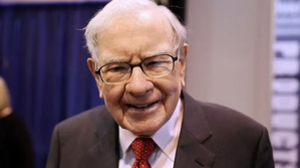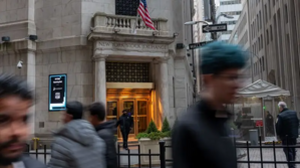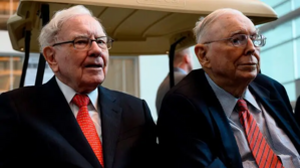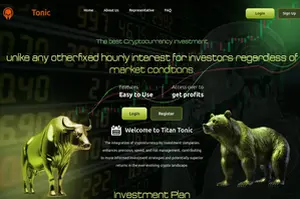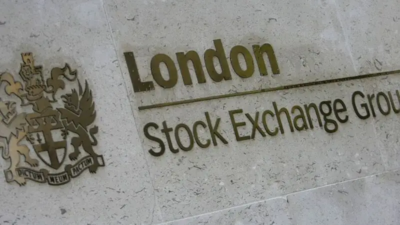The Fed probably won’t cut rates in March. Here’s what that means for markets
A version of this story first appeared in CNN Business’ Before the Bell newsletter. Not a subscriber? You can sign up right here. You can listen to an audio version of the newsletter by clicking the same link.
Stocks just raced past a milestone level, even as investors grapple with interest rate cuts likely coming later than expected.
Federal Reserve Chair Jerome Powell in January indicated that the central bank is unlikely to start paring rates in March, with the gangbusters January jobs report all but cementing that no cut is happening next month.
Investors now expect that the Fed will begin easing back rates in May or June, according to the CME FedWatch Tool.
Stocks fell initially as investors mulled over Powell’s comments. But all three major indexes still gained in January, and the benchmark S&P 500 index on Friday closed above the 5,000 level for the first time.
So, what does the Fed’s hawkish signal mean for investors?
Before the Bell spoke with Matt Orton, chief market strategist at Raymond James Investment Management, to discuss.
This interview has been edited for length and clarity.
Before the Bell: What does the Fed’s signal that it won’t cut rates in March mean for markets?
Matt Orton: I’ve always been vocally against the whole notion of a March rate cut. It just didn’t seem to make any sense with the data that we had.
I think what’s important for the markets themselves is the fact that the Fed has signaled they’re going to cut rates. So, they’re going to cut rates at some point this year, probably May or June is going to be the first cut that we get. We’re probably also not going to get as many rate cuts as the market is thinking. The Fed has penciled in three, the market’s still pricing over five. This probably means there’s some chop in the near term as the market digests what the Fed’s actually going to do.
But from an Investment standpoint, the fact the Fed is going to start cutting rates says to me that money is hiding out on the sidelines, and it’s been trying to capture a yield in short-term money market funds and securities. It’s going to have to find a new home, because front-end rates once the Fed starts cutting are going to come down fairly quickly to match the fed funds [rate].
How do you recommend investors position their portfolios, given this backdrop of higher-for-longer rates?
I very much like small-cap stocks, obviously rates coming down will be beneficial for [small caps]. Even more importantly for small, I think, is the fact that the economy is doing well. It’s funny, smaller companies are more leveraged to the US economy, so it’s surprising in many ways that small companies haven’t already started to perform better, because the economy itself is in much better shape than I think a lot of people expected.
I’ve been advising clients in areas like dividend payers. dividend growth especially, healthcare, industrials, especially near-shoring, infrastructure spending, defense spending. There’s a lot of areas where your earnings … start to reaccelerate higher, and that’s a good thing.
What else are you watching when you consider risks to the stock market’s gains this year?
Number one is if inflation doesn’t continue to come down as rapidly as we think. So, you know, we got [Consumer Price Index] adjustments this morning that was encouraging … so you can feel pretty good about it.
But given how tight the jobs market is, you see wage growth maybe reaccelerate. You see housing prices perhaps start to reaccelerate. … That could be problematic with respect to cutting [rates].
CEOs are feeling more confident about economy — and concerned about the election
US business leaders are feeling more bullish about the direction of the economy — even as their worries about the upcoming presidential election mount, reports my colleague Matt Egan.
For the first time in two years, optimism outweighs pessimism among CEOs, according to a CEO confidence measure for the first quarter released by The Conference Board on Thursday.
The survey found 36% of CEOs expect economic conditions to improve in the short term, up significantly from 19% last quarter. Those findings mirror growing confidence in a soft landing — one that looked very unlikely just a year ago.
In another sign that recession fears are ebbing, just 27% of the CEOs expect economic conditions to worsen over the next six months. That’s down from 47% during the fourth-quarter survey.
However, business leaders are growing concerned about how the political situation could impact their businesses.
Most CEOs (51%) say political uncertainty ahead of the 2024 election will be the greatest US challenge affecting businesses this year, according to The Conference Board.
Read more here.
Up Next
Monday: Earnings from Avis Budget Group.
Tuesday: Earnings from Hasbro, Airbnb, Coca-Cola and Molson Coors. The Bureau of Labor Statistics releases the Consumer Price Index for January.
Wednesday: Earnings from Kraft-Heinz.
Thursday: Earnings from Stellantis, DraftKings and Wendy’s. The Commerce Department releases January figures on retail sales and the National Association of Home Builders releases the latest NAHB/Wells Fargo Housing Market Index.
Friday: The Bureau of Labor Statistics releases the Producer Price Index for January and the University of Michigan releases its preliminary consumer survey for February.
Maybe You Like
London Stock Exchange urged to do more to hold onto retail traders
The UK stock market needs to improve investor communication and engagement in order to retain its individual traders, according to a report from online trade and investor provider CMC Markets. ADVERTISEMENTUK retail investors are increasingly...
Hargreaves Lansdown rejects private equity takeover bid
The UK investment platform says the offer from a group including the Abu Dhabi Investment Authority undervalues the firm. ADVERTISEMENTHargreaves Lansdown has rebuffed a takeover proposal worth £4.67 billion (€5.48 billion) made...
Ferrovial set to offload UK regional airports amid Heathrow deal uncertainty
Ferrovial is planning to sell its stake in three UK regional airports amid difficulties in finalising its £2.4bn sale of a 25% stake in Heathrow. ADVERTISEMENTSpanish infrastructure company Ferrovial is reportedly putting up for sale...





